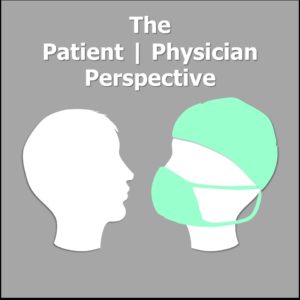In my third year, I found that, for the first time, I identified more strongly with the perspective of a provider rather than a patient. This made it easier to feel frustrated by patients who appeared to be non-adherent to treatment plans, and it was more tempting to feel reluctant when entering the rooms of “difficult” patients. It became more natural to spend less than ten minutes with patients admitted to the hospital, only asking them the questions I needed to before turning around to leave. I was steeped in my training.
When third year ended, I had a two-week window to catch up on all the appointments I had neglected throughout the busy year — the dentist, the DMV, and, of course, my annual appointment with the endocrinologist. As I sat on the table in the exam room, I quietly smiled to myself at the irony: I had been on the other side of the room the entire year, and, yet, here I was again, back to assuming the role of a patient.
One of the pre-visit labs my endocrinologist had ordered came back with a borderline result, meaning it was just barely out of the normal range. As I double checked my number on the computer screen, I felt anxiety welling up inside of me. My training and scientific knowledge and even my doctor told me that I should wait for confirmatory tests before I started worrying. After all, this test was just an initial screen — it was meant to be highly sensitive rather than specific, which meant plenty of room for false positives.
After an entire year of learning the mindset of a health care provider, it was jarring to be suddenly thrust back into the role of a patient. It meant stepping back into uncertainty and reopening the possibility of something being wrong with my body. I could forecast feeling out of control; I could foresee vulnerability slowly seep back into my life. My parents, understandably concerned, asked a million questions. My doctor recommended an MRI of my brain. For whatever reason, my initial instinct was to reject the recommendation, at least until the confirmatory labs returned — I guess I thought an MRI would make any hint of disease a reality, and I wasn’t ready for that. It was harder than I remembered to be a patient.
I thought back on the patients I had encountered throughout third year — how overwhelming a new diagnosis must have been, how difficult it probably was to process everything before doctors turned around to leave and move on to the next. I was reminded again how important it is to be patient and empathetic, to allow patients to process all their feelings and thoughts, and to leave space for all the questions running through their minds. Thankfully, several confirmatory tests came back negative several weeks later: My Cushing’s Disease remained in remission. I breathed a sigh of relief.
As I stepped into fourth year, I found that being a patient again, while a brief experience, had helped to recalibrate my perspective. It was all too easy to get caught up in the busyness of third year — of learning the ins and outs of each specialty, trying not to get lost in new hospitals, familiarizing myself with different electronic medical records. Sitting on the other side of that exam room, I was reminded to step back from all the logistical details and to remember again why I wanted to practice medicine. With this renewed outlook, I look forward to the rest of fourth year and further exploring the specialty I’m interested in. I may even be looking forward to my next endocrinology appointment when the time comes around every year to remember again, poignantly, what it is to be a patient.

